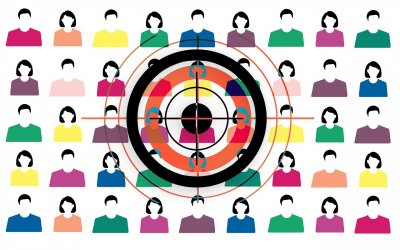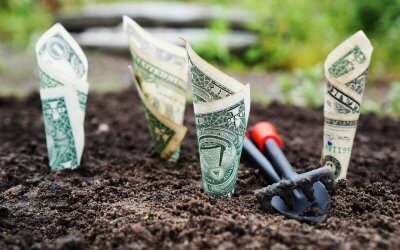As Professor Scott Galloway stated a few weeks ago, “The worst thing about a cataclysmic weather event, or a single-stranded-RNA virus that wipes out the species is … it might impact the economy. Take my eyes, don’t let the NASDAQ breach 8,000!” That is where we are now in the U.S., or maybe even further along.
Some billionaires are leading the call for people to return to work, Covid-19 be damned.
-
Lloyd Blankfein, CEO of Goldman Sachs until 2018, helped kickstart these calls when he tweeted that “extreme measures to flatten the virus ‘curve'” were sensible “for a time,” but could crush the economy. Given he was a vital player at Goldman when betting against mortgage-backed securities it sold to its clients, I am not sure he has anyone’s interest at heart other than his own.
-
According to Paychex founder, Tom Golisano, hurting the economy “could be worse than losing a few more people.”
-
Tilman Fertitta, owner of Golden Nugget casinos and Bubba Gump Shrimp, wants authorities to let businesses reopen at limited capacity in a couple of weeks as his company is “doing basically no business.” Given his early response to the crisis, I am not sure he is a credible figure in a public health crisis.
-
Dick Kovacevich, ex-CEO, President and Chairman of Wells Fargo & Co., wants healthy workers below 55 or so to return to work late next month. Kovacevich said, “We’ll gradually bring those people back and see what happens. Some of them will get sick, some may even die, I don’t know. Do you want to suffer more economically or take some risk that you’ll get flu-like symptoms and a flu-like experience? Do you want to take an economic risk or a health risk? You get to choose.” From a man who is on the board of advisors of Theranos, I find this a little rich.
After meeting with some billionaires and hedge fund managers, President Trump latched onto the idea and is calling for social-distancing business to end sooner rather than later to “save” the economy from the coronavirus. He expects the country to lift all the restrictions and be open by Easter, against the advice of his public health care advisers. Lt. Governor Dan Patrick of Texas thought it was a great idea. He told Tucker Carlson on Fox News, “As a senior citizen, are you willing to take a chance on your survival in exchange for keeping the America that all America loves for your children and grandchildren?” What he is proposing is that older people (the most vulnerable group) should be willing to die, so we don’t lose economic value. Forget John’s gospel, “Greater love hath no man than this, that a man lay down his life for his friends.” It is now, “Greater love hath no man than this, that a man lay down his life for the economy.”
I am not sure what the difference is between this idea and the “death panels” that ACA would supposedly inflict upon us, but I am sure someone can enlighten me.
While I think that the early lifting of the restrictions would result in a horrific situation with possibly a million or more dead and compound Administration’s incompetent initial handling of the crisis, is there a point as the risks of Covid-19 diminish, when we might have to make some hard decisions. As Ray Dalio said, “What is the value of human life relative to a unit of economic activity?”
The determination of this will have interesting effects on our economy, and truly put a price on humanity. Philosophers have argued about this for millennia, and leaders and governments have made these decisions through time. What is different here, is we see illness and death counts daily, models are being discussed and analyzed, so if authorities decide to loosen social distancing, we will know the assumptions behind the decision. As a result, life will be quantifiable in terms of dollars, and we will know what the government deems “a life” worth. From that, we know:
-
The value of a life lost due to actions by a corporation, or person;
-
The amount of military conflict in terms of loss of life;
-
The cost of lost life due to an abortion; and
-
Companies can calculate the value impediments of defective products due to loss of life.
If the government can justify a policy because the loss of economic units exceeds the value of life, then surely murder as “a crime” gets harder to prosecute if the murderer can show that their financial gain exceeded “the value” of the life lost. All the murderer has to do is pay the deceased family the determined value of life, and there is no further loss that one can claim.
When corporations build products that they know are not safe, i.e., the Boeing 737 Max, opioids by Purdue Pharma, the organization can now calculate the cost with certainty that any loss of life is worth and thus plan accordingly. There will no longer have to be “smoking gun” memos showing cold heart corporations valuing lives; this is just a perfectly acceptable analysis. As we get a better handle on the damage of climate change, we can calculate its cost in terms of “lives” and decide accordingly.
With risk quantified, everything now becomes a financial calculation. As such, what does it mean to be human? Where does “humanity” play a role in our society? How do we teach empathy when life is equal to a fixed dollar amount? Maybe more STEM and Business leaders should have read the humanities!
Decisions we make in difficult times, live with us long passed the crisis; hopefully, we will make decisions that we can justify to future generations and leaders.
Copyright (c) 2020, Marc A. Borrelli
Recent Posts
EOS is just that, an Operating System
The EOS Model® provides a useful foundation for businesses, but it falls short in addressing key aspects of creating an growth. By incorporating additional elements from the Gravitas 7 Attributes of Agile Growth® model, businesses can create a more comprehensive system that promotes growth while maintaining smooth operations. Focusing on Leadership, Strategy, Execution, Customer, Profit, Systems, and Talent, the 7 Attributes of Agile Growth® offer a more encompassing approach to achieving success.
What has COVID done to Company Culture?
COVID has affected everyone. However, companies need to examine if they have lived their core values during COVID, how they are reinforcing them in a WFH environment, and especially with the onboarding of new hires.
Profit ≠ Cash Flow
Knowing how much cash you generate is essential for planning for growth. Too many companies don’t know and when they grow they find they are continually running out of cash. Understand your cash flow generation and how to improve it through improvements in your Cash Conversion Cycle and using the Power of One.
What Are Your Critical and Counter Critical Numbers?
The key to achieving long term goals is to define short term goals that lead you there. Focusing those short term goals around a key metric is essential. However, ensure that the metric will not lead other areas astray by having an appropriate counter critical metric act as a counter balance.
Rethinking ‘Family’ Culture in Business: Fostering Performance and Success
Explore the importance of company culture and the potential pitfalls of adopting a “Family” culture in organizations. Learn how to foster a high-performance culture while maintaining key family values and discover success factors for family businesses. Rethink the “Family” culture concept and create a thriving environment for your organization.
Do You Truly Know Your Core Customer?
Knowing the profit of your core customers is key to building a growth model. Many companies have identified core customers that are generating a sub-optimal profit and so they cannot realize the profits they seek. Identifying the correct core customer allows you to generate profits and often operate in “Blue Ocean.”
The Spectacular Rise and Fall of the European Super League
The European Super League (ESL) collapsed within 48 hours of its announcement due to hubris, a lack of value creation, and fan backlash. The founders’ arrogance led them to disregard European football’s deep-rooted traditions and culture. At the same time, the focus on wealthy club owners instead of merit undermined the essence of the competition. The fierce backlash from fans, who felt betrayed by their clubs, demonstrated the importance of prioritizing supporters’ interests in football.
When Should I Sell My Business?
Many business owners want to sell at the top of the market. However, market timing is tough. Is this the best strategy? Probably not.
Does Your Financial Model Drive Growth?
Working with many companies looking to grow, I am always surprised how many have not built a financial model that drives growth. I have mentioned before a financial model that drives growth? Here I am basing on Jim Collin's Profit/X, which he laid out in Good to...
COVID = Caught Inside
As we emerge from COVID, the current employment environment makes me think of a surfing concept: “Being Caught Inside When a Big Set Comes Through.” Basically, the phrase refers to when you paddle like crazy to escape the crash of one wave, only to find that the next wave in the set is even bigger—and you’re exhausted. 2020 was the first wave, leaving us tired and low. But looking forward, there are major challenges looming on the horizon as business picks up in 2021. You are already asking a lot of your employees, who are working flat out and dealing with stress until you are able to hire more. But everyone is looking for employees right now, and hiring and retention for your organization is growing more difficult.











